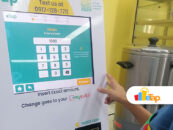
BSP: ASEAN’s 5 Biggest Economies to Link Real-Time Payments Within 3 Years
by Fintech News Philippines April 11, 2023Bangko Sentral ng Pilipinas (BSP) governor Felipe M. Medalla believes payment connectivity between the five largest economies of the Association of Southeast Asian Nations (ASEAN), namely Indonesia, Malaysia, the Philippines, Singapore, and Thailand, could be implemented within the next two to three years.
The initiative will seek to deepen financial integration and facilitate inter-regional trade by enabling faster, cheaper and more transparent cross-border transactions.

Felipe M. Medalla
“Our vision really is to be one with ASEAN-5 to have cross-border payments,”
Medalla said in a seminar hosted by Bank Indonesia (BI) in Bali last week. He stated that the implementation of payment systems linkage will facilitate international trade, investment, and other economic activities, in addition to helping the nation reach its development goals.
“We will continue to work closely with our ASEAN counterparts to achieve our financial inclusion goals,” Medalla said. “At the regional level, our arrangements in ASEAN put us in a unique position to engage in knowledge and experience sharing in digital financial inclusion.”
BSP inked an agreement with other central banks in ASEAN last year to enhance cooperation on payment connectivity and systems linkage.
The Regional Payment Connectivity (RPC) cooperation, signed by BI, BSP, the Monetary Authority of Singapore (MAS), Bank Negara Malaysia (BNM) and Bank of Thailand (BOT) on November 14, 2022, seeks to expand existing bilateral arrangements to fuel cross-border trade in a bid to accelerate economic recovery and stimulate growth for the broader ASEAN region. It includes a number of modalities, including QR code payments and real-time payments.
If conclusive, the group intends to expand the initiative to include other countries in the region as well as beyond.
BIS’ Nexus system as the foundation for ASEAN payment connectivity
As part of the RPC cooperation, the Philippines and other ASEAN nations joined Project Nexus earlier this month. The initiative, which is led by the Bank for International Settlements (BIS), aims to link domestic real-time payment systems between one another to enable instant cross-border transactions.
BSP, in addition to the central banks of Malaysia, Singapore, Indonesia and Thailand, will be part of the next phase of the research project which will focus on connecting these countries’ respective instant payment system to one another through the Nexus platform.
These central banks are joining Project Nexus after a prototype of the system successfully managed to link the Eurosystem, Malaysia and Singapore payment platforms. Test payments were initiated using only the mobile phone numbers or the recipients’ company registration numbers via the Eurosystem’s TARGET Instant Payment System (TIPS), Malaysia’s Real-time Retail Payments Platform (RPP) and Singapore’s Fast and Secure Transfers (FAST) payment system.
Findings of the trial revealed many benefits to Nexus including higher transaction speed (about 60 seconds), reduced transaction costs, 24/7/365 uptime, improved usability and greater transparency, BIS said in a summary report.
Looking ahead, BIS and the central banks involved in Project Nexus envision the platform to be implemented globally. To this end, a Global Advisory Panel of central banks and payment system operators will be established to advise on the project’s development beyond Southeast Asia. The Bank of Italy and the European Central Bank will be invited to join the panel.
Improving financial inclusion
Instant cross-border payments are part of the Philippines’ financial inclusion goals and development plans.
“We want to reduce the number of excluded people to below 30%,” BSP governor Medalla said. “The 2021 number is now 44%, and we’re certain that 2023 numbers are much lower and we are on our way towards 30% or lower excluded.”
Financial inclusion in the Philippines has increased significantly over the past couple of years. Between 2019 and 2021, the number of Filipino adults with an account more than doubled from 20.9 million to 42.9 million, data from BSP show. This brought the country’s banked population to about 56% of all adults in 2021, up from just 29% in 2019. That being said, 34.3 million adults remained unbanked.
Under the central bank’s Digital Payment Transformation Roadmap 2020-2023, BSP is seeking to bring 70% of adult Filipinos into the financial system and digitize 50% of all retail payments by the end of the year.
The country is well on track to achieve these goals, Medalla said earlier this year. He noted that e-wallets and recent initiatives have helped bring many Filipinos to the formal banking system, embrace digital financial services, and shift to digital payments.
In 2021, the share of digital payments in the total volume of retail transactions in the Philippines rose by 10.2 percentage points to 30.3%, data from BSP show. Total digital payment value reached 44.1% of 2021’s total retail transactions, up 17.3 percentage points from 2020’s 26.8%.
To further boost digital payment usage, BSP has also set out a deadline for the full adoption of the country’s QR code payment standard.
Also known as QR Ph, the standard aims to revamp the fragmented QR-driven payment landscape by introducing interoperability, eliminating thus the need for merchants and customers to maintain several accounts and different systems.
All BSP-supervised financial institutions have until July 01, 2023 to implement QR Ph and every non-QR Ph codes or proprietary QR codes must be disabled by then.








